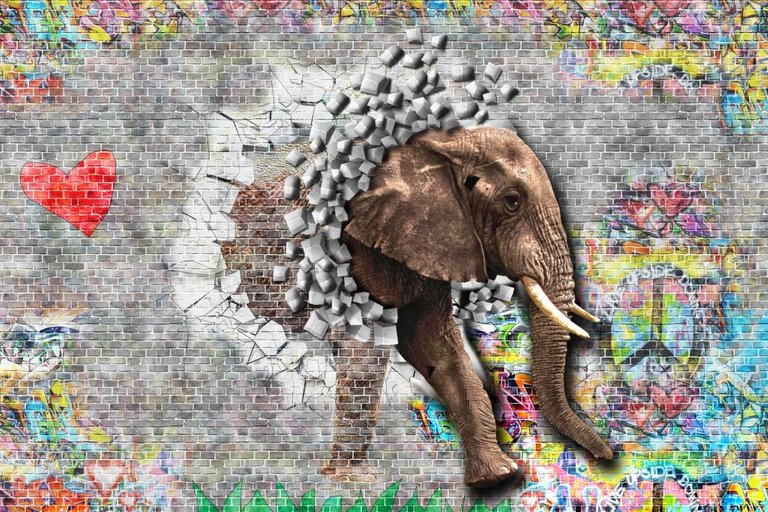The concept of illusion is a fascinating topic that has been explored by philosophers, scientists, and artists throughout history. At its most basic level, an illusion is something that deceives the senses or misleads the mind. However, as we delve deeper into the subject, we begin to realize that the illusion of illusion is far more complex than we initially thought.
One of the most basic types of illusion is the optical illusion, which plays with our perception of light and color. These illusions often involve patterns or images that appear to be moving or shifting when in fact they are not. The most famous example of this is the optical illusion known as the "Müller-Lyer illusion," which consists of two lines that are the same length but appear to be of different lengths due to the presence of arrows at the end of each line. This illusion demonstrates how our perception can be easily deceived by the context in which an image is presented.
Another type of illusion is the cognitive illusion, which is created by the way our minds process information. These illusions often involve misconceptions or biases that lead us to see things that are not actually there. One famous example of this is the "illusion of control," which is the tendency for people to believe that they have more control over events than they actually do. This illusion can lead to overconfidence and poor decision making.
In addition to these basic types of illusion, there is also the concept of the illusion within the illusion. This refers to the idea that there is a deeper level of deception at play, beyond what we initially perceive. For example, a magician's trick may seem like a simple optical illusion, but in reality, there is a sophisticated mechanism at work behind the scenes. Similarly, a person's behavior may seem irrational, but in reality, there is a deeper psychological motivation driving their actions.
The illusion within the illusion can also be applied to the way we perceive the world around us. We often assume that our perceptions are an accurate representation of reality, but in fact, they are often shaped by our own beliefs, experiences, and biases. This means that the world we see is not necessarily the same as the world that exists.
Another example of the illusion within the illusion is the role of media in shaping our perceptions of reality. The news, entertainment, and advertising industries all have a vested interest in presenting things in a certain way, which can lead to the manipulation of public opinion and the creation of false narratives. This is not to say that all media is inherently deceitful, but rather that we must be aware of the potential for bias and manipulation in the information we consume.
So, in conclusion, the illusion of illusion is a complex and multi-layered concept that touches on various aspects of human experience. From the way our minds perceive and process information, to the way we interact with the world around us, to the role of media in shaping our perceptions, there are many layers of deception and misperception that we must be aware of in order to truly understand the world. It is important to remember that the way we see things is not always the way they are, and that by being aware of the illusions that shape our perceptions, we can gain a deeper understanding of reality.

Congratulations @dervendekate! You have completed the following achievement on the Hive blockchain And have been rewarded with New badge(s)
Your next target is to reach 1250 upvotes.
You can view your badges on your board and compare yourself to others in the Ranking
If you no longer want to receive notifications, reply to this comment with the word
STOPTo support your work, I also upvoted your post!
Check out our last posts:
Support the HiveBuzz project. Vote for our proposal!